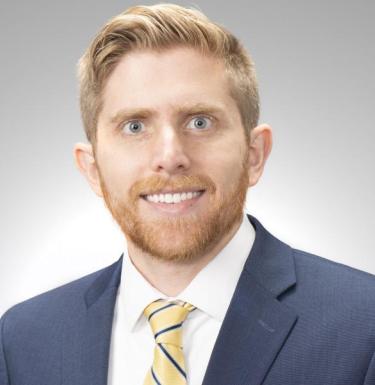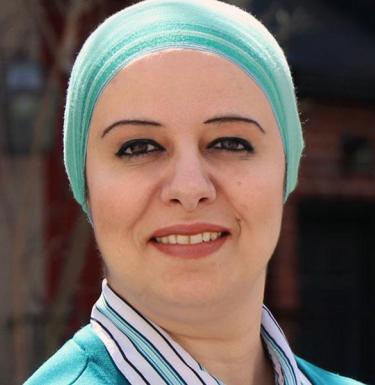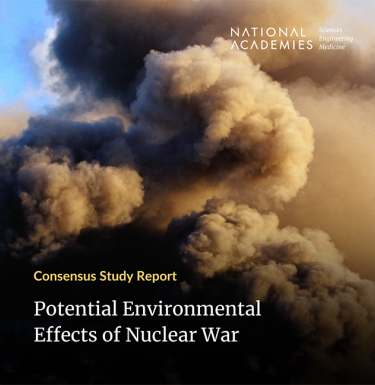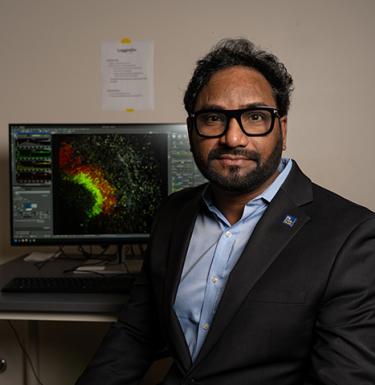
Pitt researchers say residents will get results of tests for vinyl chloride and liver damage, refer people for treatment if needed
"We said unequivocally that every community member will get all their information personally," said Maureen Lichtveld, dean of Pitt's School of Public Health. "So if we see early warning signs, we will refer them to a specialist. We will also provide more overarching results."

We're Racing to Implement AI in Healthcare. But Who's Guiding the Way?
Alexander Sundermann, DrPH, assistant professor of epidemiology at Pitt Public Health, cautions against a full speed approach to implementing AI into clinical practice without adequate testing and oversight.
5 Pitt health sciences faculty members received 2025 Ascending Star Awards
Sonja Swanson, associate professor of epidemiology, is one of five faculty members in Pitt's Schools of the Health Sciences to receive a 2025 Ascending Star Award. She will give a research talk on September 4 at 3:30 p.m. in Alan Magee Scaife Hall, room 3785.
Ticky business: How Pitt researchers track the 8-legged bloodsuckers
When Pitt Public Health professor Danielle Tufts and her team of students go out, they bring just a few things: A white jumpsuit, a pair of tweezers, some tiny vials to store specimens and a meter-long piece of white corduroy.
New center and training program prepare future leaders in maternal and child health
A new Center of Excellence in Maternal and Child Health Education, Science, and Practice is launching at Pitt Public Health—with a mission to train the next generation of public health leaders committed to improving outcomes for birthing people, children and families.
Anxiety diagnoses have overtaken Pennsylvania's medical cannabis program, study finds
"Adding anxiety to the [cannabis] program may inadvertently signal to patients that cannabis is effective for treating it, despite the lack of evidence, which is concerning,” Coleman Drake, associate professor of health policy and management, said in a statement.
In Good Health: Vaccines, menopause, and cardiovascular disease
Epidemiology's Samar El Khoudary discusses cardiovascular disease and the menopausal transition live on NPR's news magazine show 1A.
Dengue severity linked to genetic ancestry’s influence on immune response
Priscila Castanha, PhD, assistant professor of infectious diseases and microbiology, and colleagues have linked the extreme variability in severity of the mosquito-borne viral disease dengue to the influence of genetic ancestry on inflammatory responses in the skin.
Tiffany Gary-Webb channels Senegal trips into collaborative disease research
Dr. Gary-Webb's focus on African American populations in the U.S. has expanded to include the Caribbean, Jamaica and Dakar, Senegal, with recent travels and collaborations geared toward improving health outcomes for noncommunicable diseases.
Jewish Healthcare Foundation announces the Justin Reid Ehrenwerth Emerging Scholar Award
The Jewish Healthcare Foundation has awarded $15,000 to the School of Public Health to establish the Justin Reid Ehrenwerth Emerging Scholar Award. This award will support a high school student enrolled in the school's Public Health Science Academy.
Potential environmental effects of nuclear war report and webinar
Dean Maureen Lichtveld, a member of the National Academies' Committee on Independent Study on Potential Environmental Effects of Nuclear War, participated in a report and webinar on the Potential Environmental Effects of Nuclear War.
Dr. Felicia Hill-Briggs Health Equity Trailblazers in Diabetes Award debuts
Tiffany L. Gary-Webb, PhD, MHS, professor of epidemiology, received the inaugural Dr. Felicia Hill-Briggs Health Equity Trailblazers in Diabetes Award.
Recent heavy rains wreak havoc on Pittsburgh's river recreation
Beyond sewage, flooding can wash all sorts of chemicals into the water, said Maureen Lichtveld, dean of the school of public health at the University of Pittsburgh.
mRNA vaccine technology makes headway via Pitt, Penn State research
"This study demonstrated two key aspects," said Suresh Kuchipudi, senior author on the paper and chair of infectious diseases and microbiology, "that we can produce mRNA vaccines with much less mRNA required, that will significantly lower the cost of the vaccines."